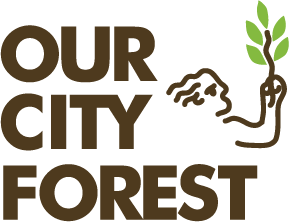This book is for anyone that cares about the future of life on this planet, especially for people like myself who admire trees. Bolen offers a larger consciousness of our connection to trees and expresses that now is the time to honor and protect them.
The book begins with her observation that there are "tree people", and "not-tree people". A tree person has positive feelings for individual trees and an appreciation of trees as a species while the latter does not. She goes on to describe the many ways "tree people" have come to be through shared life experiences. A tree person may have childhood recollections of trees being amongst their imaginative play, a person who seeks the comfort of a tree grove during uncertain times, and may understand why someone will stand in front of a tree in order to protect it from being cut down. Bolen provides a wealth of information about tree anatomy and physiology, introduces what tropical and boreal rainforests are, their health status and efforts to save them. She calls on us readers to discover an assignment that is personal and motivated by love and says that a tree person has the potential to become a tree activist at any age. She kindly provides us with role models of 'Activism with Heart' through storytelling.
"Women have long been defenders of our forest. They've recognized that when forests fall, the livelihoods of local communities fall with them. Animals flee, soil quality thins, floods and landslides increase, and carbon-sequestering canopies are lost. Whether planting new trees or starting sustainable economic endeavors, women are regenerating the 'lungs of the Earth'"(Like a Tree, 2011, pp. 183)
Bolen speaks about how women, like trees, are devalued and exploited and advocates that the fate of forests and women are intertwined. She informs us that deforestation combined with population growth contributes to climate change. "Might reforestation and reproductive rights go hand in hand?" She also examines the female brain circuitry, hormonal physiology, and research that supports the need for women to become a force of change because of innate talents and abilities.
Throughout the book, Bolen uses "like" as a simile to describe the similarities between ourselves, trees and associated symbols from different perspectives. The chapter heading, "Symbolic like a tree" explores mythic, and archetypical, religious, cosmic, and personal symbols. She also invites images of trees to come to the mind, and evoke soulful memories that help us connect to our interdependence.
"Like a Tree" has validated my role in tree activism, and I conclude with a heightened awareness of the power of collective and individual efforts.


